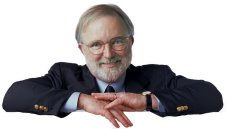doctom.com : about
. . . . . . . . . . . . . . . . . . . . . . . . . . . . . . . . . . . . .

|
doctom.com : about . . . . . . . . . . . . . . . . . . . . . . . . . . . . . . . . . . . . . |
 |
|
press roomTom Ferguson, MD
Pew Internet & American Life Project Washington, DC Adjunct Associate Professor of Consumer Health Informatics School of Health Information Sciences, University of Texas Health Science Center Houston, TX Senior Associate Center for Clinical Computing Boston, MA Editor & Publisher The Ferguson Report: The Newsletter of Online Health (www.fergusonreport.com) Austin, TX Contact information: Email: doctom@doctom.com Web: www.fergusonreport.com Phone: 512.474.1141 Fax: 512.474.8444 Mailing address: P.O.Box 50540, Austin TX 78763 Everything you always wanted to know about DocTom-but were too polite to ask. Online Health Links The Ferguson Report: The Newsletter of Online Health www.fergusonreport.com A free, e-mail newsletter for health and computer professionals who are developing online patient resources, online patient services and consumer interfaces for health-related IT systems. Our latest issue features an article on Type 1 vs. Type 2 online docs. You can read all current & back issues & sign up for a free subscription at: www.fergusonreport.com "The Online Health Care Revolution How the Web Helps Americans Take Better Care of Themselves" (Our Latest Pew Internet Health Survey) Key Findings:
The Online Health Care Revolution: How the Web helps Americans take better care of themselves You can download the whole report at www.pewinternet.org "Online Patient-helpers and Physicians Working Together: A New Partnership for High quality Health Care," Tom Ferguson British Medical Journal i Vol. 321, Pp. 1129-1132, Nov 4, 2000 "In January 1998 Karen Parles, a 38 year old librarian at a major New York art museum, learned that she had lung cancer. "My doctors told me it was incurable, that I had only a few months to live," she recalls. "I'm a life-long nonsmoker, so the whole thing came as quite a shock. I was pretty overwhelmed at first. But as soon as I could, I went on to the internet, looking for information. And I asked all my friends to help...." Continued at: http://www.bmj.com/cgi/content/full/321/7269/1129 "Digital Doctoring: Opportunities and Challenges in Electronic Patient-Physician Communication," Tom Ferguson (Editorial) Journal of the American Medical Association Vol. 280, No. 15 "The Internet is an increasingly popular medical information resource for consumers. A 1997 survey indicated that 43% of the estimated 40.6 million US adults aged 18 years and older who had accessed the Internet within the previous 12 months used it to obtain health or medical information. At least 10,000 health and medical sites are on the World Wide Web, and are maintained by entities ranging from academic medical centers and professional organizations to individuals. Thousands of other online self-help and support groups, electronic bulletin boards, and mailing lists also are available, covering topics ranging from acne to yeast infections. Fridsma et al have suggested that many patients who go online are increasingly interested in exchanging e-mail with their physicians. In a 1996 survey, Brown found that patients ranked "information from my own doctor's office" as the type of online health information they desired most..." Continued at: http://jama.ama-assn.org/issues/v280n15/ffull/jed80084.html Report of a Recent Online Health Conference at Harvard School of Public Health Harvard Net News "Anthropologists believe that a society moves through five stages of response when new technology is introduced: Ignore, resist, substitute, innovate, and finally, transform. Dr. Tom Ferguson thinks that in response to the Internet, the medical community is hovering around the first three stages...." Continued at http://www.hno.harvard.edu/netnews2000/5.31/FergusonRx.html "Guidelines for the Clinical Use of Electronic Mail with Patients" AMIA Working Group Task Force on Guidelines for the Use of Clinic-Patient E-mail (Dr. Ferguson is one of the members of this Task Force) Journal of the American Medical Informatics Association, Vol. 5, No. 1, Jan/Feb 1998, pp. 104-111 http://www.amia.org/pubs/other/email_guidelines.html This is the original set of guidelines on this topic--upon which all others have been based. An updated set of guidelines is currently in the works. For other sets of guidelines, see Danny Sands' page, below. Danny Sands' Clinical Use of Doctor-Patient E-mail Page http://clinical.caregroup.org/ePCC/ Danny Sands, at Harvard's Center for Clinical Computing offers a central source of constantly-updated information for providers who would like to communicate with their patients online. His site offers tips for physicians, tips for patients, and several sets of guidelines for developing clinic-based systems for doctor-patient e-mail. There are links to the best medical journal articles, to other centers that make extensive use of e-mail with patients, and to related news stories, professional organizations, companies offering related services, and other useful goodies. Highly recommended for all health professionals interested in developing online patient services.
|